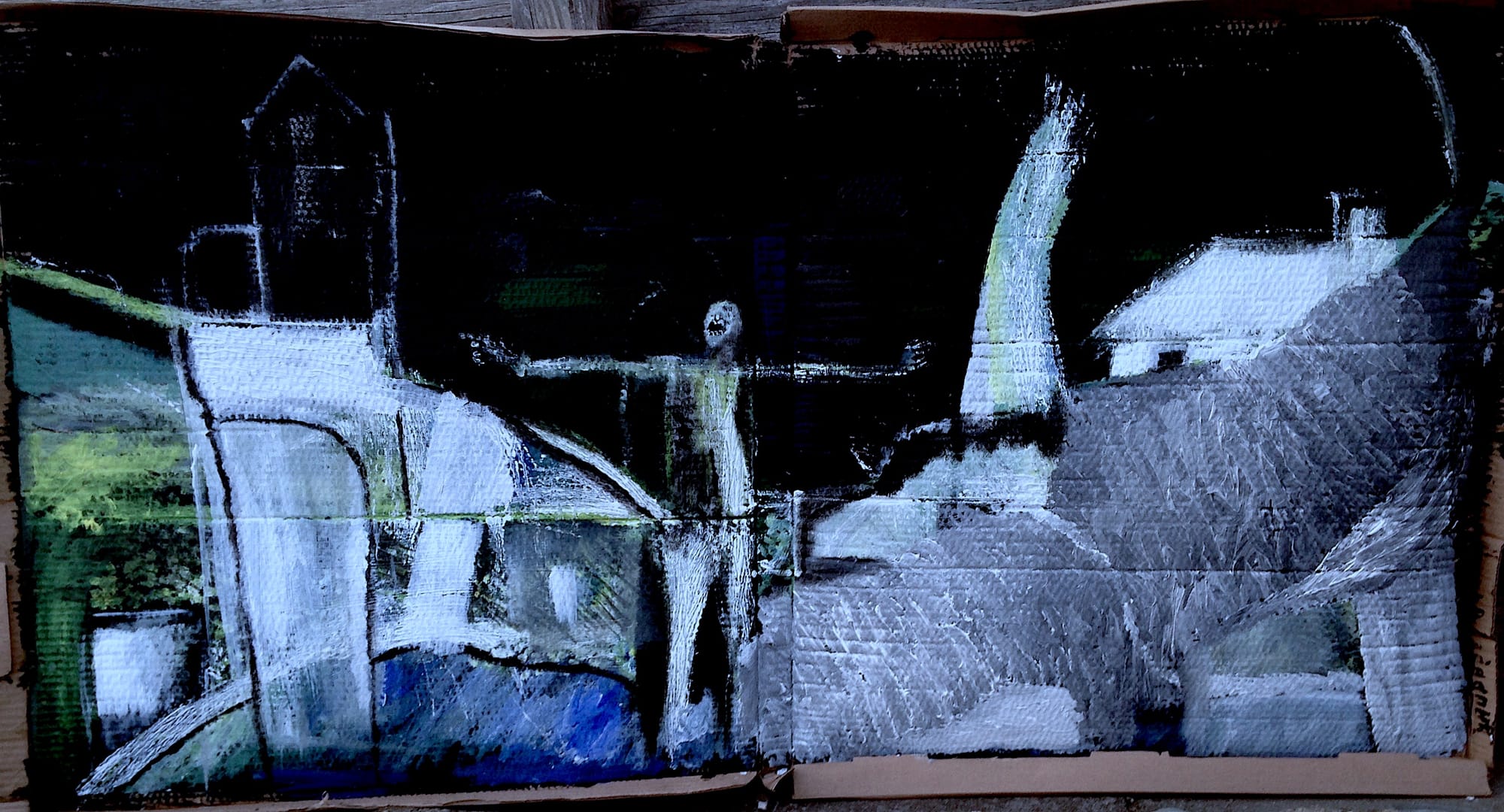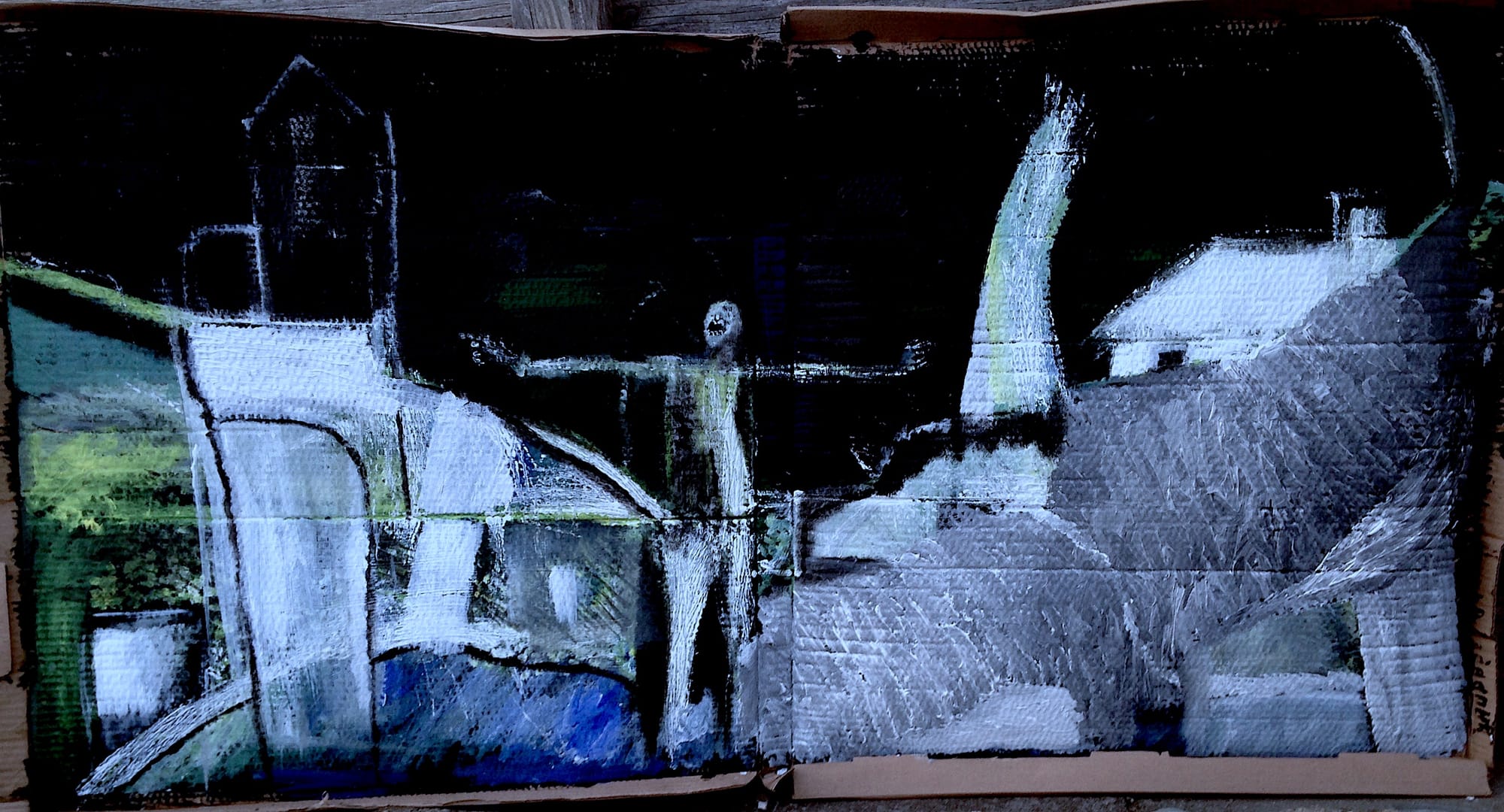47094: 11 The Creeping Existentialist Wakes To An Unsatisfactory Reality

Before going to market, leaning from her little flat into the bright, unspeakable day, his lean body had become a solution to last night rather than the future. The future required a concentration he'd never achieve.
‘The European is clever because they know how amusing money can be. They described Africans so we wouldn’t see the knives he gently laid out on us.’
Everything he said started over each time, in spite of all he knew, against it all, which is the very issue of chaos and how it endures and people with it, as if there was proportion in living without meaning, and heroism in living as if there were.
‘You’re clever too. Always objectifying your inner experience. Everything you don’t understand you call history. Or else you ask someone else to admit to a crime that you’ve made your own psychological foundation.’
She rolled a smoke. He watched a mistle thrush lengthen the valve of its pressing music of the past-perfect tense. He didn’t smile. His face was noble like everyone’s who might accidently end up in jail eventually. His own tragedy was greater than the fall of Empires, than the height of significance, rising before any appointed time, something present only as it made itself, but looking backwards to times of acute social disturbance, whatever, with aspirations that rescued themselves in terms of their own experience, a loss, of common rights, vestiges of status and myriads lying in the region and shadow of further deteriorations, history being this immiseration on the terraqueous globe, lapping at the centre of it, away from principalities and powers and ‘dark meroë water’ where feet no longer touch the earth, all ephemeral ungraspable natures and erasures.
He was squashed and hopelessly belligerent as firmly as German unity consecrated at Versaillles, one of those lives that only half goes into action and so remains at least half a failure. Yet there was something in him she saw that wasn’t the old thing again, but something newer, recognising that it was birth that defeated death, not archaism, futurism nor hardheaded work even, which was a melancholic thought. He wanted to shoulder a certain unprecedented shuffle of responsible, refute Toynbee’s one damned thing after another but was misled by the nature of his ambition which outdistanced his walking powers and was therefore a trap. And self-deceit’s one way of living in that, even if not the only way.
Freedom was the quiet watchword. He was a secret conspirator hidden in full view. But his revolution was not the open face he thought it was. Ominously, history was being viewed in terms that made him seem, ostentatiously, like an adult with all the relevant facts when actually he was something very different, someone suffering a series of ordeals on the behalf of higher powers he could hardly articulate. She could see a blind, sacred force in him. There were roots that went very deep. It was as if everything he thought, said and did was not open as it seemed but seized somewhere else, secretly and without conscience. The usurper and the powerless spell. She thought of the rare mysteries of bees and spiders, their combs and webs kneaded from unspoken, hidden sufferings or blissful desire.
‘You can’t teach me who I am. No one can do that. Or maybe you can at least find what is the worst in me, my abominable part. It seems every story is true but few are good.’
‘To me it’s not quite about knowing, experiencing, the torments and delights of the underworld. It’s more about the pleasures they bring. Actually it’s not quite that either. It’s more about acquiring a taste for contemplating them in all their awefulness, all their beauty. It’s all about the feasibility of rough drafts. Lack of them is a dirty trick. ’
He twisted his body so that he faced back into the room where she sat on the flowing bed sheets and its wrecked distinctions. His eyes ceased to see the way things in the room were, or even what they were. Objects had lost their solidity, as if some public ventilation had cleansed his view of the treacherous, malicious day. There was something that made him look again and see the bed, the pot plants on the shelf, the white wash-painted Parisian wardrobe in the corner, the lush curtains and small plates, mugs, kettle and utensils, everything, as uncanny things, as if they held within them some uneasy boundary. He felt a taint of this idiot dread. The light’s strange aura was some creeping bodice from half way down the wall to the rug. He closed his eyes trying to shake off the sense that there was someone else slowly, so it seemed, making its way in through the light. To the left of this, he thought, to the other side of the candle there, that’s where I need to be.
‘Onye ji onye n'ani ji onwe ya: "He who will hold another down in the mud must stay in the mud to keep him down.” That’s our predicament. The way out is a kind of charity that is impossible to keep up.’
Read 47094 from the beginning here.
Read the complete novel 'The Ecstatic Silence' here.
